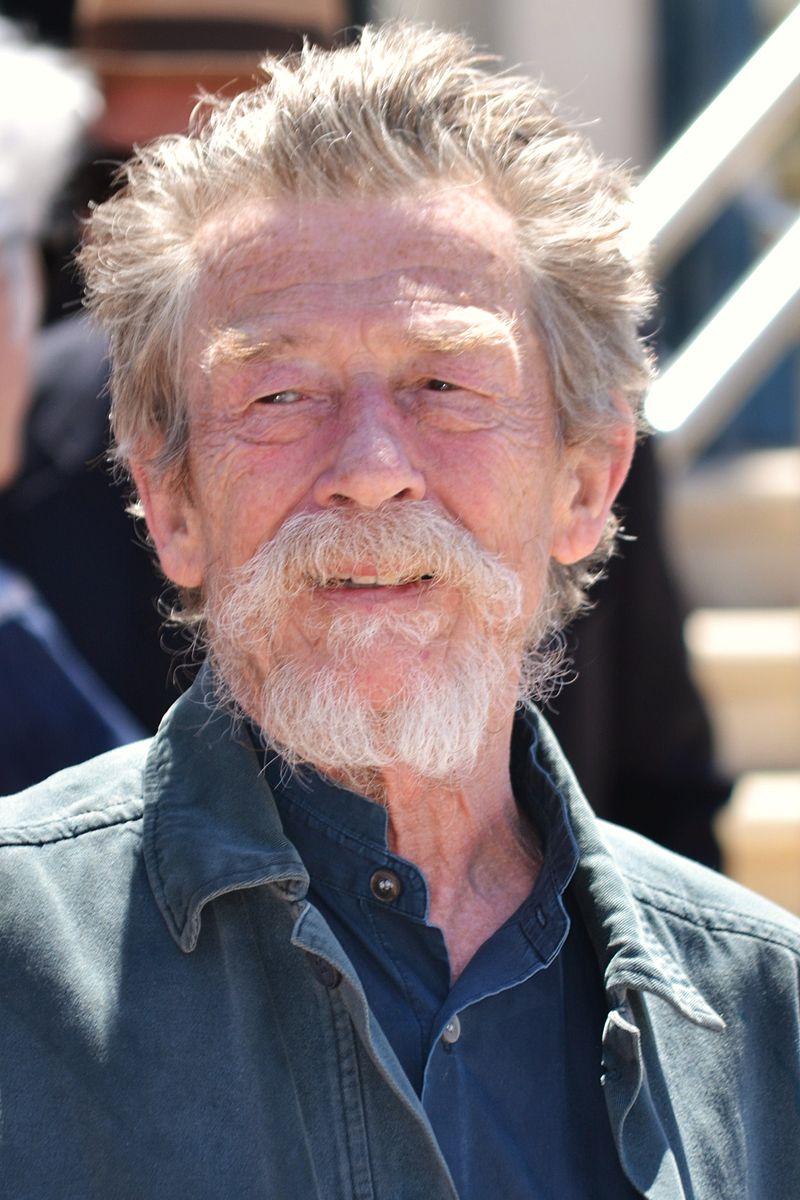John Hurt
John Hurt

Sir John Vincent Hurt CBE, born on 22 January 1940 and passing away on 25 January 2017, was an English actor celebrated for a career spanning over five decades. Regarded as one of Britain's finest actors, he was lauded by director David Lynch as "simply the greatest actor in the world." Hurt was known for possessing the "most distinctive voice in Britain." Throughout his illustrious career, he received numerous accolades, including the BAFTA Outstanding British Contribution to Cinema Award in 2012, and was knighted by Queen Elizabeth II in 2015 for his contributions to drama.
Hurt rose to prominence with his portrayal of Richard Rich in the film A Man for All Seasons (1966) and earned acclaim, winning the British Academy Television Award for Best Actor for his role in The Naked Civil Servant (1975). His portrayal of Caligula in the BBC TV series I, Claudius (1976) further solidified his reputation. Hurt received Academy Award nominations for Best Supporting Actor for Midnight Express (1978) and Best Actor for The Elephant Man (1980). His diverse filmography includes notable works such as Alien (1979), Heaven's Gate (1980), Champions (1984), Nineteen Eighty-Four (1984), and Rob Roy (1995).
In addition to his film work, Hurt gained widespread recognition for his roles in popular franchises, portraying Mr. Ollivander in the Harry Potter film series (2001–11) and appearing in the Hellboy films (2004, 2008), V for Vendetta (2005), and Indiana Jones and the Kingdom of the Crystal Skull (2008). He showcased his versatility in acclaimed films such as Melancholia (2011), Tinker Tailor Soldier Spy (2011), Only Lovers Left Alive (2013), and Jackie (2016).
Hurt reprised his role as Quentin Crisp in An Englishman in New York (2009), earning his seventh BAFTA nomination. He also portrayed the War Doctor in the BBC TV series Doctor Who's 50th-anniversary special, "The Day of the Doctor," in 2013. In addition to his on-screen performances, Hurt lent his voice to various animated projects, including Watership Down (1978), The Lord of the Rings (1978), The Plague Dogs (1982), and The Black Cauldron (1985), among others. His contributions to the entertainment industry left an indelible mark on both cinema and television.
John Vincent Hurt was born on January 22, 1940, in Chesterfield, Derbyshire, to Phyllis and Arnold Herbert Hurt. His father, Arnold, was a mathematician who later became a clergyman in the Church of England, serving as a vicar in various parishes in Derbyshire and County Durham. Hurt's upbringing was marked by frequent moves as his father took on different pastoral roles.
As a child, Hurt attended St Michael's Preparatory School in Otford, Kent, where he discovered his passion for acting after participating in school productions. However, his early years were also marred by experiences of abuse from a senior master at the school, which left a profound impact on him.
Despite facing discouragement from his headmaster at Lincoln School regarding his acting aspirations, Hurt remained determined to pursue a career in the performing arts. His family's disapproval led them to encourage him to become an art teacher instead. Hurt briefly attended Grimsby Art School before earning a scholarship to study at Saint Martin's School of Art in London for an Art Teacher's Diploma.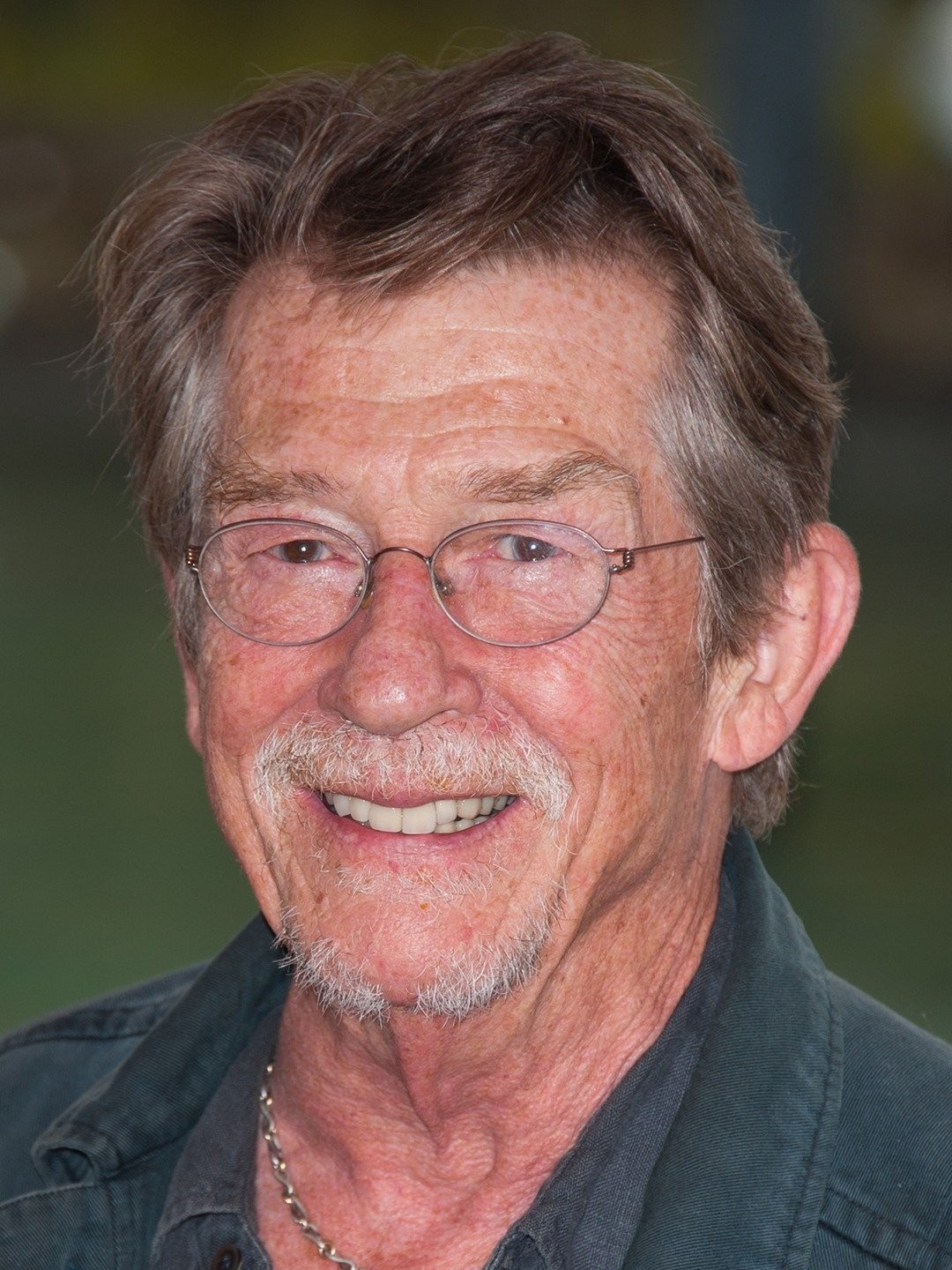
However, Hurt's passion for acting persisted, and in 1960, he earned another scholarship to attend the prestigious Royal Academy of Dramatic Art (RADA). During his time at RADA, Hurt honed his acting skills and graduated in 1962 with a diploma in Acting.
Despite the financial challenges he faced during his education, Hurt's talent and dedication propelled him forward, laying the foundation for his remarkable career in film, television, and theater.:max_bytes(150000):strip_icc()/mbdbewi_ec045_h-2000-4bd3a29814314f77b9885fa8c578ec42.jpg)
Hurt's early career saw him in a variety of roles across film and television. His first film appearance was as Phil Corbett in the 1962 romantic drama "The Wild and the Willing." This was followed by roles in the kitchen sink drama "This Is My Street" in 1963 and an episode of the television series "Gideon's Way" in 1964.
In 1966, Hurt landed his first major role as Richard Rich in the historical drama "A Man for All Seasons," directed by Fred Zinnemann. This acclaimed film also starred Paul Scofield, Wendy Hiller, and Orson Welles, among others. His performance earned him recognition and set the stage for his subsequent career.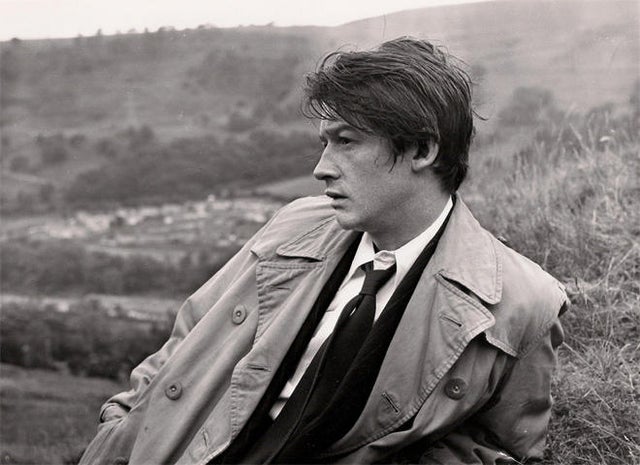
Hurt continued to impress with roles in various films, including John Huston's comedy "Sinful Davey" (1969) and the war film "Before Winter Comes" (1969). He gained further acclaim for his portrayal of Timothy Evans in "10 Rillington Place" (1971), earning his first BAFTA nomination.
One of Hurt's most notable roles came in 1975 when he portrayed Quentin Crisp in the TV play "The Naked Civil Servant." This performance garnered him widespread attention and earned him the British Academy Television Award for Best Actor. He continued to showcase his versatility with roles in projects like "The Sweeney" episode "Tomorrow Man" (1976).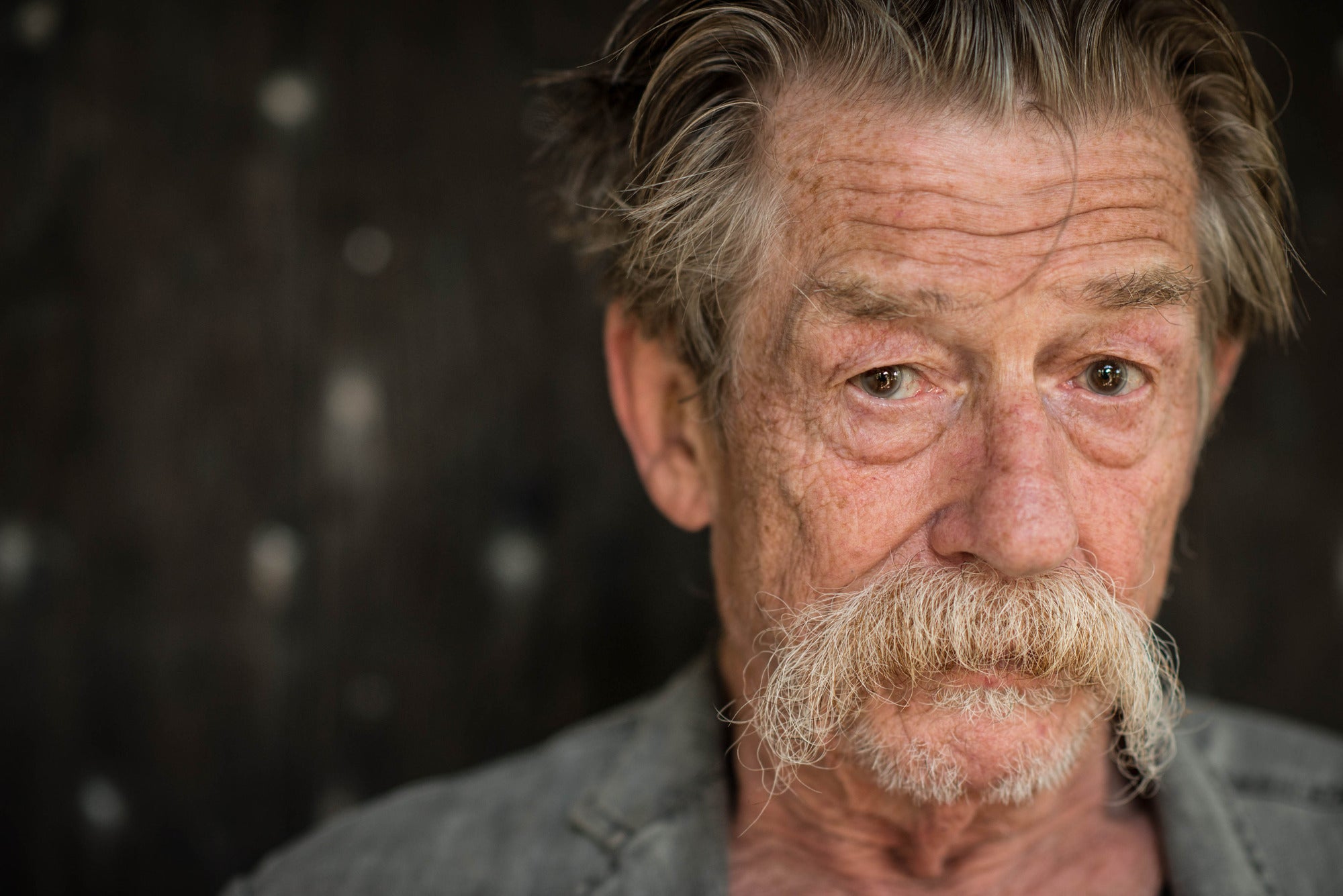
John Hurt continued to impress audiences and critics alike with his versatile performances throughout the late 1970s and early 1980s. One of his notable roles during this period was as the Roman emperor Caligula in the BBC drama serial "I, Claudius" (1976), which earned him further acclaim.
In 1978, Hurt delivered a memorable performance in the film "Midnight Express," for which he received a Golden Globe and a BAFTA Award, and was nominated for an Academy Award for Best Supporting Actor. He also lent his voice to several animated projects, including Ralph Bakshi's adaptation of "Lord of the Rings" and the film version of "Watership Down" (both 1978).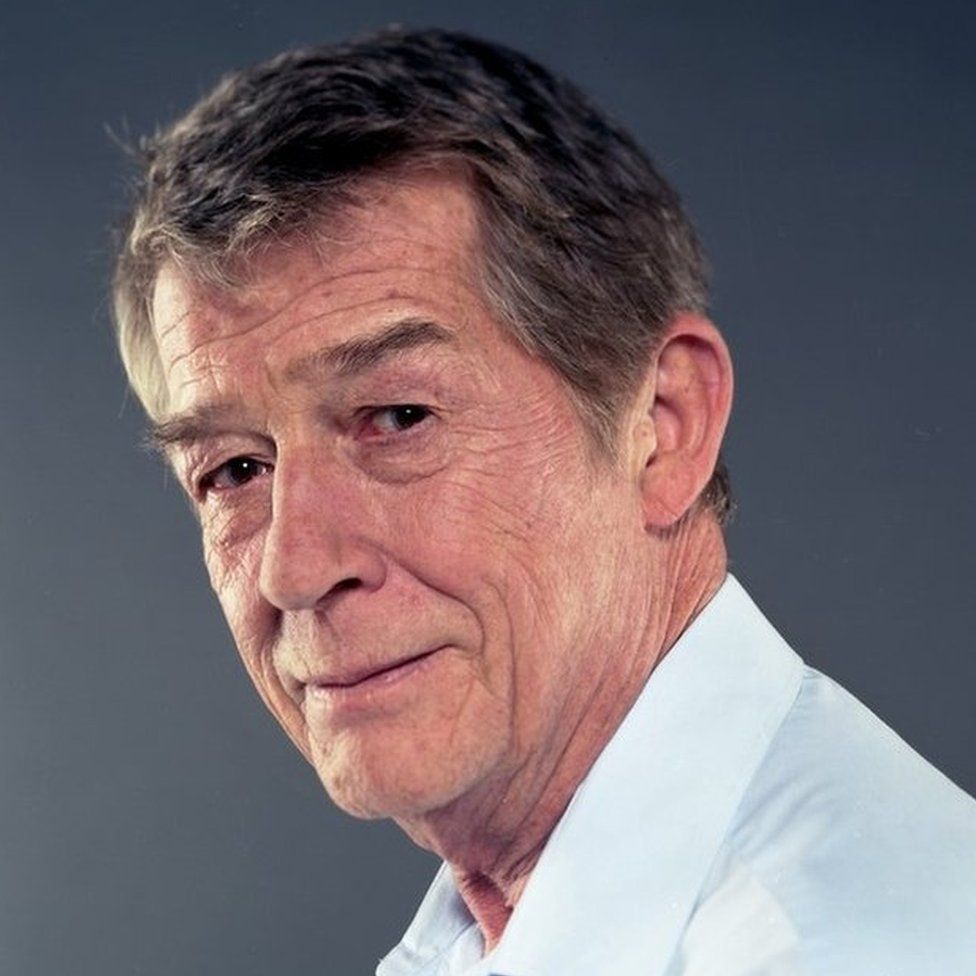
Hurt's iconic roles continued with his portrayal of Kane in Ridley Scott's "Alien" (1979), where he became the first victim of the titular creature. He later parodied this role in Mel Brooks' "Spaceballs." In 1980, he delivered a remarkable performance as Joseph Merrick in David Lynch's "The Elephant Man," earning him critical acclaim, a BAFTA Award, and nominations for an Academy Award and a Golden Globe.
Throughout the early 1980s, Hurt showcased his versatility in a range of roles, including starring in Michael Cimino's epic Western "Heaven's Gate" (1980) and portraying Jesus Christ in Mel Brooks' comedy "History of the World, Part I" (1981). He also earned accolades for his performances in "Champions" (1984), "The Hit" (1984), and "Nineteen Eighty-Four" (1984), receiving the Evening Standard British Film Award for Best Actor for his work in these films.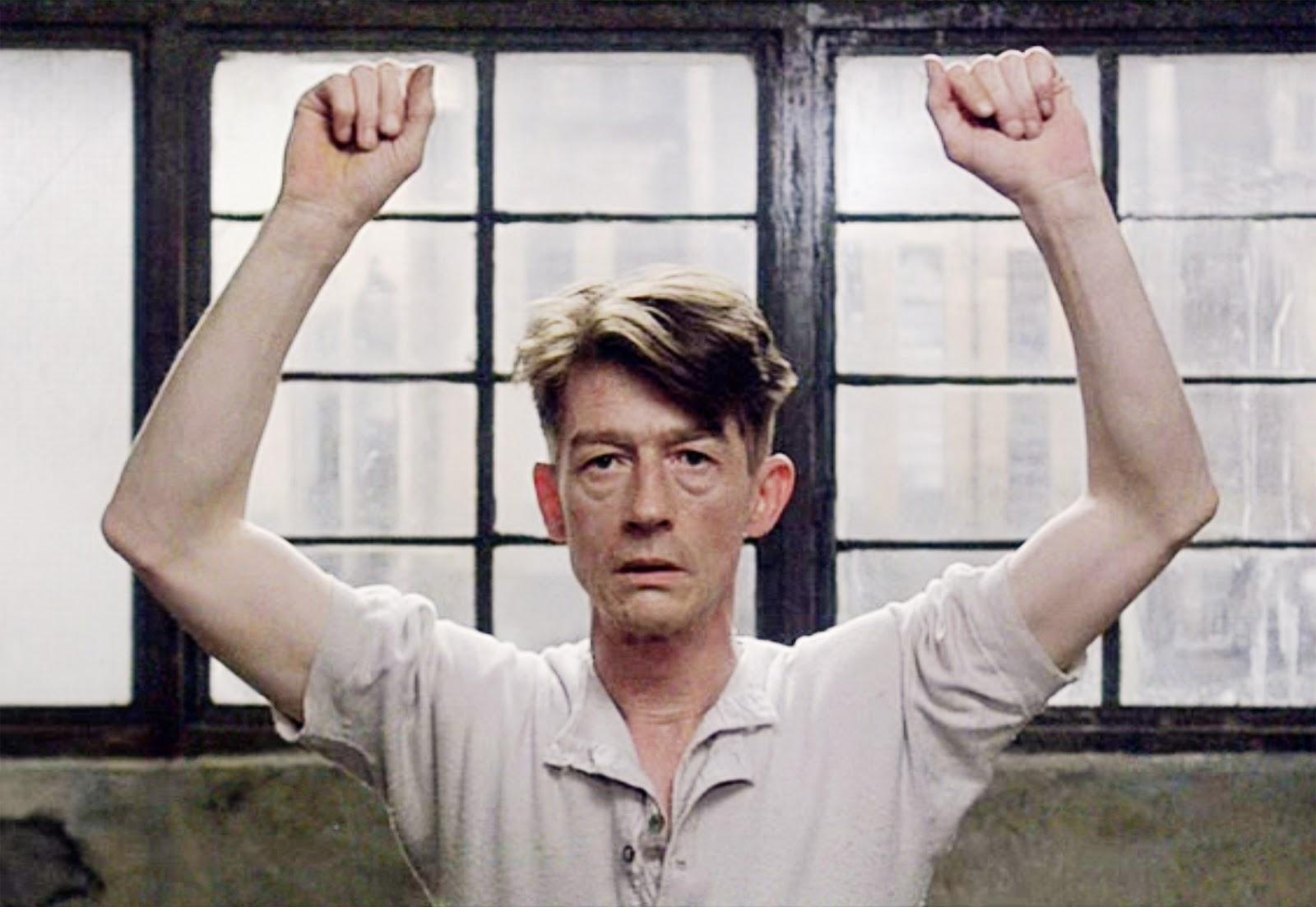
References
- Sephton, Connor (29 January 2017). "Acclaimed British actor Sir John Hurt dies from cancer aged 77". Sky News. Retrieved 17 February 2017.
- ^ Kreps, Daniel (27 January 2017). "John Hurt, Oscar-Nominated 'Elephant Man' Actor, Dead at 77". Rolling Stone. Archived from the original on 24 December 2017. Retrieved 17 February 2017.
- ^ Ellen, Barbara (13 March 2006). "Barbara Ellen meets John Hurt". The Observer. Retrieved 21 June 2018.
- ^ "John Hurt, 'the most distinctive voice in Britain', falls silent". The Australian. 30 January 2017. Retrieved 21 June 2018.
- ^ "John Hurt 'thrilled' with Bafta lifetime achievement honour". BBC News. Retrieved 13 April 2015.
- "The BBC Audio Drama Awards - 2018 Finalists". BBC. Retrieved 20 April 2021.
- ^ "John Hurt says he'll star in Terry Gilliam's Don Quixote movie, if it ever happens". AV Club. 23 September 2014.
- ^ Jagernauth, Kevin (22 September 2015). "Terry Gilliam's 'The Man Who Killed Don Quixote' Delayed Again Due To John Hurt's Cancer Diagnosis". The Playlist. Archived from the original on 27 November 2015. Retrieved 6 January 2016.

